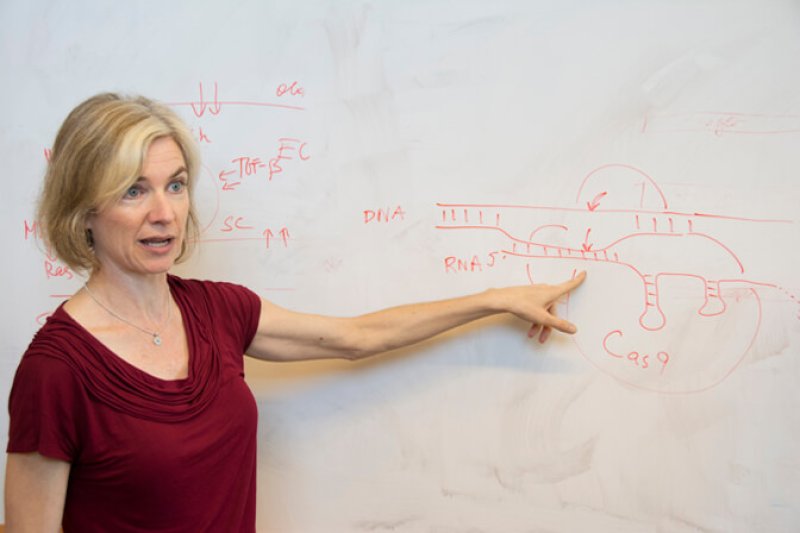Jennifer Doudna, the gene-editing pioneer whose breakthrough in CRISPR technology has taken the scientific world by storm, expressed surprise [May 22] at how fast the world’s scientists have put her findings to work, as well as concern that gene-editing technology could outpace ethical constraints on its use.
…
CRISPR could help people awaiting organ transplants by making animal organs more humanlike or less likely to be rejected by human hosts, Doudna said. It is being used to explore ways to cure human diseases, like Huntington’s, that have genetic causes, and it can also be used to create diagnostics.
In agriculture, Doudna said, scientists can change the genomes of crop plants far more precisely using CRISPR than they can with selective breeding. Changes could make crops more robust in adverse conditions, pest-resistant, and able to bear more fruit.
Some changes, like those to differentiated tissue cells known as somatic cells, will only affect the organism in which they are made, while those made to cells important to reproduction, called “germline editing,” will be passed on to future generations.
With the ability to easily change the genome of an organism, including a human being, Doudna said it is important that ethical discussions keep pace with technology.
Read full, original post: CRISPR’s breakthrough implications































